
Aם ישראל חי / עַם 'י-- ִשְׂרָאֵל חַי AmYisra'el chai' The nation of Israel lives

Israel: God's Model Nation
Ray Stedman
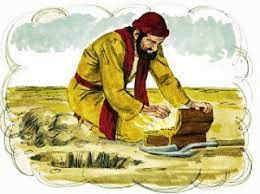
The Parable of the Hidden Treasure
“Again, the kingdom of heaven is like treasure hidden in a field, which a man found and hid; and for joy over it he goes and sells all that he has and buys that field.
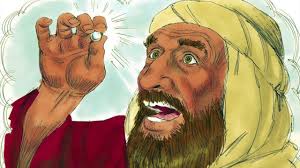
The Parable of the Pearl of Great Price
“Again, the kingdom of heaven is like a merchant seeking beautiful pearls,
“who, when he had found one pearl of great price, went and sold all that he had and bought it.“ (Matthew 13:44-46)

In the great series of parables in Matthew 13 our Lord gave us, as he said, "The secrets of the kingdom of heaven." The kingdom of heaven is God's work among men, God's rule and authority in the midst of human affairs. In this series Jesus is revealing the work of the kingdom as it is going on throughout the centuries of this present age since his first coming and before his return. We come to the fifth parable this morning, the parable of the buried treasure.
I don't know what that may evoke in your mind. It always reminds me immediately of Robert Louis Stevenson's Treasure Island, of Long John Silver, and doubloons and pieces-of-eight, pegleg pirates, and all the exciting things usually associated with the idea of buried treasure. It is intriguing to realize that Scripture deals with this subject as well. It recognizes the allure and the mystery which always gathers around the notion of hidden treasure. God has his buried treasures and he is speaking of them in this parable.
But the exciting thing about Scripture is that in it we are always dealing with fact, not fancy. These parables afford us a glimpse behind the scenes of history into factors and forces which are at work today but which we would never find reported on the pages of the newspaper. And yet they are extremely controlling of human events. Through the pages of the Word of God we are afforded tremendous insights into life. I hope you never open your Bibles without the sense that here is a book which gives you vital, inside information which you can get from no other source and which will help you to understand yourself, and life, and the mystery of history, more than you possibly could in any other way.
The first four parables, at which we have already looked, were delivered by the Sea of Galilee on a single memorable occasion when Jesus spoke to a great crowd who gathered about him. The crowd was large that he moved out from shore in a boat to be able to speak to them and teach them these parables. But we need to recognize that the parable of the treasure hidden in the field is the first of a series of three which our Lord gave in connection with the other four and on the same day, but, as Matthew is careful to tell us, he gave these to the disciples alone after they had gone back into the house. They are part of the whole series of seven, but they were given only to the disciples, and there is something significant about that.
The first four stories were given to the unbelieving seaside crowd. They concern those aspects of the kingdom of heaven at work among men which are readily recognizable and visible in history. But these last three were spoken only to the men of faith, the disciples, who were ready to believe what God said. They concern things which are not quite as easily seen in the historical process.
You remember that in the first parable our Lord informed us by means of the story that he would engage in a great sowing of the Word of God throughout the world and that it would fall on four kinds of hearts. There would be a partial failure of the seed of the Word because of the conditions of some of the hearts into which it fell. But there would be one kind of heart in which the seed would grow up into a harvest and produce fruit.
Then, building on that, in the second parable the Lord said that he would take the sons of the kingdom, who are produced by the seed of the Word, and sow them like wheat throughout the world. He has been at work ever since, sending men into all parts of the earth and into all levels of society, among all kinds of people, putting them there in order that there may be a testimony of the Word. But in that same parable he said that an enemy would come and sow tares, or weeds, are that these would grow up right alongside the wheat. So, through the course of history, there has been a counterfeit Christianity, a sham religion, a phony, a fake, which bears the name of Christianity but which is absolutely false. These two would grow up together and sometimes would be difficult to distinguish, especially at the beginning, but eventually would make their real nature known. This has certainly proved true in history.
And then our Lord said in the third parable that there would be an abnormal and an unnatural growth of the seed that he planted. It would grow into an ungainly tree with many great branches, a powerful, prestigious structure that would attract birds of prey, evil men who would come into the church and build their nests there, i.e., establish their authority there, and thus would produce something entirely different than the effective, pungent, but low-profile approach to humanity that the Lord desired.
Finally, there was the parable of the woman who took leaven and introduced it into the three measures of meal, by which Jesus made clear that something would destroy the precious fellowship of the people of God and that it would be allowed into the church by the very people who were appointed to keep it out. All this has happened exactly as our Lord said and all of it is visible in history.
Now we turn to these three private parables given to the disciples: The parable of the hidden treasure, the parable of the pearl of great price, and the parable of the dragnet. I want to read these twin parables of the hidden treasure and the pearl of great price because they link so closely together, although we will look only at the first one this morning. In Verses 44 and 45 Jesus says,
The kingdom of heaven is like treasure hidden in a field, which a man found and covered up; then in his joy he goes and sells all that he has and buys that field.
Again, the kingdom of heaven is like a merchant in search of fine pearls, who, on finding one pearl of great value, went and sold all that he had and bought it. (Matthew 13:44-46 RSV)
You can see that these parables are very much alike. They each have the element of a man who discovers something valuable and sells all that he has and buys it. They fit together but they are not talking about exactly the same thing.
A great misinterpretation of these parables has developed, quite without any basis in the systematic interpretation of symbols in Scripture, which has hidden their true meaning. (As we saw last time, the parable of the leaven also has been misconstrued to mean something quite different from what our Lord ever intended.) The usual interpretation of these parables is that Christ is the hidden treasure and that he is the pearl of great price. And as we go through life we are the people who some day discover him. Then it is up to us to sell all that we have, give it all up, and buy him at any cost. But I submit to you that that is false, and obviously so. Never, anywhere in Scripture is salvation ever offered to us as something we have to buy, or can buy. We are absolute paupers in God's sight. We have nothing to offer him, nothing that we can give in return. Salvation is offered to us as a free gift, entirely by the grace of God. No one can ever give all that he has in order to purchase Jesus Christ because he has nothing to give in the first place. Therefore, we will not spend any more time on that misinterpretation, but will come right to the heart of what the story of the treasure hidden in the field really means.
Notice that there are two things in this story which are immediately recognizable because we have had them before. There is a man, and there is a field. So we already have clues as to what these mean. The man in these parables is always Jesus himself. He has previously identified himself as the central figure. And the field, he has told us, is the world, the world of humanity, the human race, all of society. With these clues that our Lord himself has given us, we now have the key to the understanding of this parable. Jesus came, he says, and found a treasure hidden in humanity. Something was hidden, lost in the human race, but he uncovered it. And then he did an amazing thing. He covered it up again, buried it again. Then he went and gave all that he had and bought that field of humanity.
Immediately we are asking ourselves, "What is this treasure?" That is what our Lord wants us to ask. One of the fascinating things about studying Scripture, especially in a series of parables, is to try to answer questions like that -- to seek to fit the puzzle of the parable to the pattern of life, and see where they correspond. Something is hidden in the world. It was hidden when our Lord came. He uncovered it but buried it again, and now it is hidden once more. And there it remains until our Lord's return. Now, what is it?
Well, is it not obvious that there is something lost with relation to humanity, something every human being seems to be seeking, consciously or unconsciously, something every thinking person in this room and throughout the world is searching for and longing for with an ache that is almost physical? Men have dreamed of finding it for centuries. They have erected great organizations to try to bring it about, to produce this hidden treasure. The United Nations exists for this very purpose. The Communists claim that they have found it. Western democracies say that they have found it. But it is very evident that neither has found this secret. What would it be?
The treasure is the secret of international peace, of harmony among the nations. You see, as our Lord indicates, it is something related to the field, to humanity. And it is hidden within that human field so that Jesus had to buy the field in order to get the treasure. That treasure is the lost secret of how to get along with other nations, how to discover peace and prosperity and happiness and all the many results of peace that men have been seeking after for centuries.
This week I was talking with Bill Gwinn, the director of Mt. Hermon Christian Conference Center. He had been in Washington, D. C., spending some time with a young congressman who is a mutual friend of ours. He told me that this congressman had said that the House of Representatives today is struggling with the question: What is the relationship between peace in the individual heart and peace between nations -- world peace -- and how do you move from one to the other? They know there is some kind of tie between them, but they don't know what it is. This congressman said that Congress is really wrestling with this issue. He himself is deeply involved in it. (You see, congressmen don't spend all their time smoking cigars and kissing babies.) The word peace is on everyone's lips today. There are banners and placards everywhere you go in America, crying out for peace. And Congress is trying to put its finger on where you begin and how you relate peace of heart in an individual to peace among men. How do you find this secret?
I was reminded by that conversation of the words of the Secretary General of the United Nations, U Thant. Some time ago, in addressing a crowd of 2,500 delegates from 57 countries of the world who were trying to find some way to world peace, he said these remarkable words:
"What element is lacking so that with all our skill and all our knowledge we still find ourselves in the dark valley of discord and enmity? What is it that inhibits us from going forward together to enjoy the fruits of human endeavor and to reap the harvest of human experience? Why is it that for all our professed ideals, our hopes, and our skills, peace on earth is still a distant objective seen only dimly through the storms and turmoils of our present difficulties?"
There is an honest cry from the harassed heart of a statesman who is desperately trying to find the treasure that is hidden in man, the secret of world peace.
If you want to put that treasure into one word, as revealed by the Scriptures, that word is Israel, the nation of Israel. I am sure that these disciples understood this because they were Jews themselves, and they knew their people's history, and what the Old Testament revealed about them. These were men of the Word, and when our Lord spoke this parable, they would clearly remember the words of Exodus 19. God is speaking to this nation which he has given the Law and he says,
"Now therefore, if you will obey my voice indeed, and keep my covenant, then you shall be a peculiar treasure unto me above all people:" (Exodus 19:5a KJV)
And they would remember the words of Psalm 135:4:
For the Lord hath chosen Jacob [another name for Israel] unto himself ... for his peculiar treasure. Psalms 135:4 KJV)
You need only read the book of Deuteronomy to know that God set aside this people, the Jews, in order that they should be a showcase of theocracy to all the other nations of the world. We speak of the Jews as "the chosen people," and unfortunately a very grave misconception of that phrase has arisen. Even the Jewish people themselves misunderstand it to a large degree. Usually people take it to mean that God has chosen the Jews for a special destiny, to mean that they are to have special and uniquely privileged treatment, different than any other nation enjoys. But such is not the case; God did not choose Israel for that purpose. He chose them to be a representative nation, to be a working model of what a nation ought to be, in order that other nations might share that knowledge. He set them out as a sample, an example nation, to indicate by visible demonstration what God wants to be and to do with all the other nations of the world. Israel, therefore is not a unique, select people, but rather is a people chosen to demonstrate the kind of relationship that God wants to have with every other people on earth. They are intended to demonstrate how any nation can be blessed and fulfilled and find prosperity and peace and harmony and happiness if they discover the secret of their relationship to God.
That is Israel's purpose and there was a time in their developing history when it was partially fulfilled. In the days of David and Solomon there was a demonstration to the world of their day of what God would do with a nation which was in right relationship with him. It was a partial demonstration, never complete, never full. But even that partial realization was a magnificent model of what God could do with any nation. In the days of David, and especially in those of Solomon who followed, the world beat a path to Israel to see what God was doing.
You remember the story of the Queen of Sheba who, as Jesus had said earlier this very day, came "from the ends of the earth" Matthew 12:42) because she had heard of Solomon's glory and she wanted to find the secret of this man's prestige and power and wisdom and majesty. She was no inconsiderable monarch herself. She wasn't just Queen for a Day. She was a great queen in her own right. And she brought with her a great retinue bearing exotic spices, gold, silver, precious stones, beautiful cloth, an amazing array of presents for King Solomon. These were the best she had to offer. But when King Solomon met her he began to give presents to her, and his outweighed hers by far. She reviewed all the glories of the kingdom of Solomon and was amazed and staggered by what she saw. Then she asked him for the secret and Solomon took her to the temple and there he showed her the worship of Jehovah, showed her how this nation was related to the God of glory and that it was their understanding of God which produced the magnificence she had seen. And the queen's heart melted and she said, "I didn't believe the reports until I had seen all this with my own eyes, but the half has never been told me," (1 Kings 10:7).
Now that is God's plan for the nations -- to provide a working model in the nation Israel. This is what we human beings need. We never can understand anything until we see it demonstrated before us. That is why it is not enough to preach the gospel to people; you must also live it. It is not enough to mouth great words like love and joy and peace and forgiveness; you also have to demonstrate them, or people will never believe the gospel, never accept it, never receive it.
So the secret of world peace is wrapped up, bound up, in this strange nation, Israel. Only when Israel comes again into its right relationship to God is it ever possible to have world peace. I hope that this is clear to the many of you, especially those of you who are younger, who are earnestly and zealously and quite dedicatedly trying to pursue world peace. It is right that you should pursue it. Nations are right to try to solve their problems and reconcile their differences. There is nothing wrong with that at all. But, nevertheless, the Scriptures tell us that the secret is hidden from men until it be revealed through Israel.
When our Lord came into the world and came to Israel he found that this treasure had been lost to the world. For more than four hundred years Israel had been an obscure, tiny little nation. There was no voice of God in their midst, no prophet speaking forth from God. The nation's glory was gone. It was now subject to the Romans, crushed under the heel of an iron-hearted oppressor. And our Lord found the nation in bondage, the temple overrun with moneychangers, commercial charlatans making a fast buck by preying upon the worship of the people. He found poverty and misery stalking the land.
When he found it, what did he do? He uncovered it. That is the story of the gospels. He revealed for a brief flash of time the glory that was Israel. He declared it in great messages like the Sermon on the Mount. And then he demonstrated it by healing the multitudes, by driving the moneychangers out of the temple, by feeding the thousands with bread and fish, and by rebuking death and evil everywhere he went. In the short course of the three and a half years of our Lord's ministry he uncovered the treasure of Israel, the secret of this nation's life.
But you know what happened. The nation would not have it, would not have him, and they rejected him. So according to the parable he hid the treasure again. You cannot read the Gospel stories without seeing that there came a time in our Lord's ministry when he began to change his message and turn away from the proclamation that the kingdom of heaven was at hand, that he was there in their midst. As opposition began to mount against him and resistance to his message increased, our Lord withdrew from Jerusalem and went out into the desert. He refused to go into the capital city again until his appointed hour had come. And the crowds who had followed him, the multitudes who had hung upon his words faded away. "Many turned back," the record says, "and no longer walked with him," (John 6:66).
Eventually he came again into the city and there he pronounced solemn and serious words of judgment against the nation. You can read them in Matthew 23 in the sharp series of woes that he pronounced against the Pharisees and the scribes. "Woe to you, scribes and Pharisees, hypocrites!" he said (Matthew 23:13, et al). Earlier he had pronounced judgment on the outlying cities: "Woe to you, Chorazin! Woe to you, Bethsaida! -- for if the miracles done in you had been done in Tyre and Sidon [which were pagan communities], they would have repented long ago. But you have refused," (Matthew 11:21, Luke 10:13).
Jesus had entered Jerusalem in what we call the triumphal entry. He would never have called it that. He went into the city riding upon an ass in fulfillment of the prophecy of Zechariah, "Behold, your king is coming to you, humble, and mounted on an ass, on a colt the foal of an ass," (Matthew 21:5, Zechariah 9:9). Instead of being received by the rulers and leaders of the people he was rejected. A crowd of children and humble folk were the only ones who recognized him and went ahead of him waving palm branches and crying, "Hosanna! Blessed is he who comes in the name of the Lord!" (Matthew 21:9, Mark 11:9, John 12:13). He lamented over this recalcitrant city and said, "O Jerusalem, killing the prophets and stoning those who are sent to you! How often would have gathered your children together as a hen gathers her brood under her wings, and you would not! Behold, your house is left unto you desolate. For I tell you, you will not see me again until you say, 'Blessed is he who comes in the name of the Lord!'" (Matthew 23:37, Luke 13:34).
Then, as you can read in Mark's Gospel, our Lord went into the temple and he stopped the sacrifices. He ended them, and then he said to the people, "The kingdom of God shall be taken from you and given to a nation that will bring forth the fruits of it," (Matthew 21:43). By that he indicated that the privilege of demonstrating the grace of God would he taken from Israel and given to the church. The church would thereafter demonstrate before men the healing grace of God as we will see in our next study together. Finally Jesus left the city once more and went out to his death.
But the wonderful thing the Lord tells us here is that he has not given up his purpose. God has not forgotten Israel. In this little parable he reveals that he came and found this treasure, the secret of world peace and prosperity, hidden in this nation. Yet they had lost the secret of their own lives. So he unfolded it and unveiled it again. Then he covered it over again when it was rejected by the people. But then the parable says, "Then in his joy the man went and gave all that he had and bought the field." And in those words, "he gave all that he had," the mystery of the darkness of the cross of Jesus Christ is implied. They bring to mind the words of Philippians 2: "Though he was equal with God he did not count it a thing to be held on to But he emptied himself, disenfranchised himself, pauperized himself -- he gave all that he had -- and became obedient unto death, even death on a cross," (Philippians 2:8).
In the dying of Jesus there, one element of what was accomplished was that he might finally purchase the right to set Israel again among the nations as a model nation so that the world might learn how to live in peace. And in that we can see revealed the heart of God who looks at this broken and fragmented world, with all its injustice, heartache, sorrow, violence, and slaughter, and yet has not forgotten his purposes and has preserved the secret of world peace in a treasure hidden among the nations which he shall someday bring forth again.
Yesterday I spent a few hours with Dr. Billy Graham. He was in Israel not long ago. And he was telling me how divided among themselves the Israelis are and how they are separating into squabbling bickering groups, fighting each other, and into many political parties vying for power. Though they are surrounded and ringed by enemies armed to the teeth who are vowing to wipe every Jew off the face of the earth, Nevertheless, as is obvious, they do not understand the secret of their own life and are trying to produce peace and stability by democratic methods and consensus and compromise. They have not yet grasped again the lost secret of their nation -- that the nation which walks in right relationship to him, God will heal.
I have never forgotten something I learned years ago when in Hawaii. It is recorded in the motto of that fiftieth state. This motto is a result of the work of the early Christian missionaries who came from New England in the 19th century. It is: Ua mau ke ea o ka aina ika pono, which I am sure you understand means, "The life of the land is preserved by righteousness." And you and I are making a great mistake if, as Americans, we think that this country is being held together by the Constitution of the United States or by the Declaration of Independence. Thank God for those documents, but they have no power to hold us together as a people, to preserve our national liberties or our national life. The life of this land, like that of any other land, is preserved by righteousness. That means obedience. That means a recognition of his healing power, and of the fact forgiveness is available for all the injuries and mistakes and wrong doings of our past. That means a change of mind, repentance, turning again to God and recognizing his presence in our midst. That is what keeps a nation strong. If our country forgets that, it will lose its ability to stand as a nation among the other nations of the world.
And the nations of earth will never learn this righteousness finally, until Israel stands once again as a nation before God, recognizing the presence of God in their midst and providing a working model of how every nation ultimately shall be run by the provision and power of God. This parable tells us that. Our Lord came and he bought the whole field so that someday he might use the treasure hidden in it to make the world blossom with glory.
This is what Paul tells us in the ninth, tenth, and eleventh chapters of Romans. You will never understand what God is doing in history unless you understand those three chapters because they make clear God's relationship with this strange and wonderful people, Israel. There Paul too tells us that God is not through with Israel. He has but hidden them away again.
For 1900 years Israel was utterly lost among the nations, dispersed. When our Lord covered the treasure over it was hidden completely in the field of humanity again. But in our own time we are facing an amazing wonder, one of the most remarkable things that has ever taken place in the annals of men, and one of the most dramatic demonstrations of the truth of the Word of God! God has gathered this nation together again, brought in the people from the outlying countries of the world, gathered his dispersed from the four corners of the earth, and brought them back into the land. There they stand ready, being prepared right now to discover again, finally, the secret of their life. They have not found it yet. But when they do, Paul tells us, they will cause the earth to blossom and the world will move into its promised inheritance. Listen to these words from Romans 11. Paul says of Israel,
So I ask, have they stumbled so as to fall? [That is, Israel had obviously stumbled at that time, but have they fallen completely?] By no means! But through their trespass salvation has come to the Gentiles, so as to make Israel jealous. [That is, when God set Israel aside, he allowed his delivering word to go out directly to Gentile peoples everywhere so that they might be the visible demonstration of how God can heal and fulfill human life, and Israel was watching -- at least individual Jews have been, all along.] Now if their trespass means riches for the world, and if their failure means riches for the Gentiles, how much more will their full inclusion mean! [That is, when Israel comes back into its right relationship with God, how much more blessing will this world understand and realize when they see worked out before their eyes what a nation can be with God in its midst!] (Romans 11:11-14 RSV)
And in Verse 15 Paul says,
For if their rejection means the reconciliation of the world, what will their acceptance mean but life from the dead? (Romans 11:15 RSV)
This is a dream and a vision that men have long held. Politicians have struggled for centuries to try to find the secret of world peace. Years ago I was struck by the closing words of a great address that Winston Churchill gave at Edinburgh, Scotland, in 1950:
What prizes lie before all the people if they are worthy of them: peace, food, happiness, leisure, wealth for the masses never known nor dreamed of, the glorious advance into a period of rest and safety for all the hundreds of millions of homes where little children play by the fire, and girls grow up in all their beauty, and young men strive and win in the free enterprise of life. Around us the storms may gather, but let us not shut out the hope that the burdens of fear and want may be lifted for a glorious era from the bruised and weary shoulders of mankind.
What a beautiful dream. But is it only a dream? No! The Lord Jesus says that he came and uncovered for a brief time the secret of world peace and prosperity. But he hid it again. And then he went and gave all that he had and bought the field in which it is hidden. God is in control. He bought the field in order that someday he might use that treasure to cause the whole world to blossom and to fill the earth with peace and happiness. When the world sees again a visible manifestation of what God intends a nation to do, then the nations will learn world peace. They will come and study this little nation of Israel in which the secret of world peace has always been hidden, the strange, chosen nation for which our Lord gave his life.
And do you know that all this is not without its application to us as individuals as well? For Israel, even in rejection, even in failure, is still an example to the people of the world. If you want to see how God will act with you as an individual then look at the way he has been acting with Israel as a nation. This is why this nation is here. It is a visible example to all mankind of the way God deals with humanity.
So, if there are some among us here, who, like Israel, have temporarily turned away from God and have been walking away from him, who may, like Israel, once have had sweet fellowship with the Lord but lately have been resisting, have turned aside and gone back, have lost faith and now are wandering in perplexity, puzzlement, and bewilderment, in obscurity, weakness, and defeat, nevertheless God's promises to you are just as sure as they are to Israel. God has said that if you will turn back to him, as Israel will some day, he stands ready to heal, ready to forgive, ready to wipe out all the failures, all the transgressions, and to begin in your experience to cause your life to blossom and to come into abundance. If there is anyone here in that condition, remember that this is God's promise to you, and that he has given a visible demonstration in the life of this nation.
Next week we will go on to see how this parable ties very closely with the next one, the parable of the pearl of great price. In these two parables our Lord is telling us the reasons for the cross. The pearl is different than the treasure, and yet for both the Lord gave all that he had.
Prayer
Our heavenly Father, how we thank you for the marvelous truth that you, Lord, have bought the world, that it belongs to you, and that you shall some day rule and reign in power and glory in its midst and all your promises shall be fulfilled. We pray, Ltfulness. We ask it in Jesus' name, Amen.
JUNE 27, 1971
Lord Jesus, that we may all apply this to our lives, and that we may understand that you desire to heal us and bring us right now into an experience of joy and glory and gladness and fruit

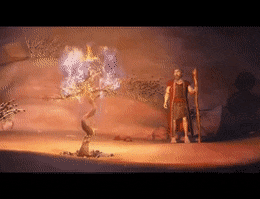
c. 2150-195 BC
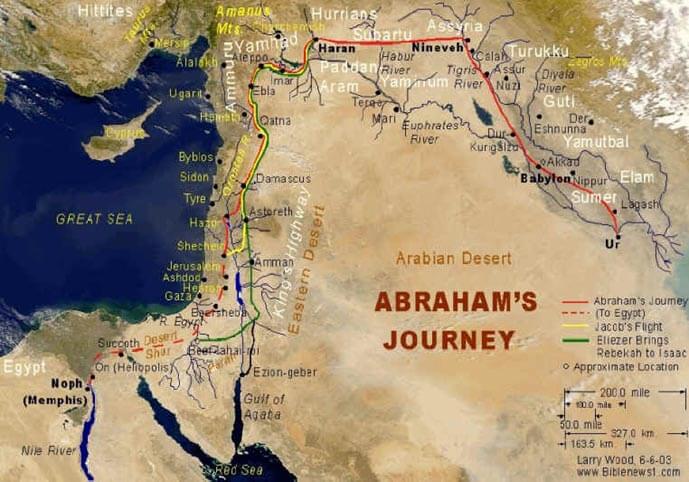
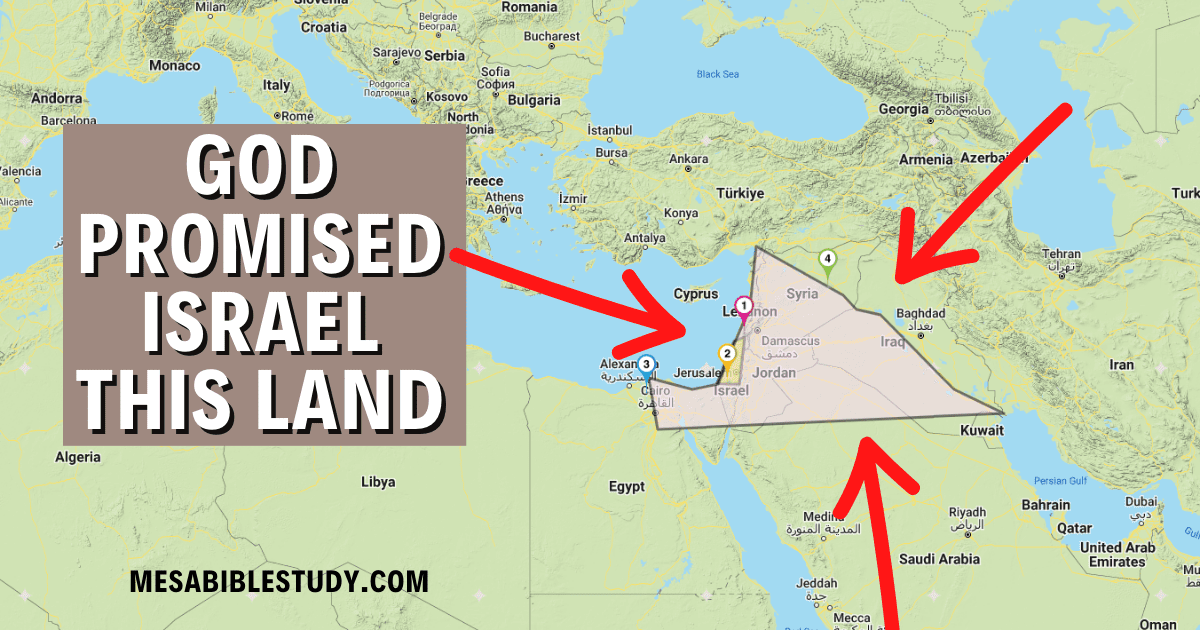
אַבְרָהָם |
.jpg)
|
Abram Blessed by Melchizedek
17 After his return from the defeat of Chedorlaomer and the kings who were with him, the king of Sodom went out to meet him at the Valley of Shaveh (that is, the King’s Valley). 18 And King Melchizedek of Salem brought out bread and wine; he was priest of God Most High. 19 He blessed him and said,
‘Blessed be Abram by God Most High,
maker of heaven and earth;
20 and blessed be God Most High,
who has delivered your enemies into your hand!’
And Abram gave him one-tenth of everything. 21 Then the king of Sodom said to Abram, ‘Give me the people, but take the goods for yourself.’ 22 But Abram said to the king of Sodom, ‘I have sworn to the Lord, God Most High, maker of heaven and earth, 23 that I would not take a thread or a sandal-thong or anything that is yours, so that you might not say, “I have made Abram rich.” 24 I will take nothing but what the young men have eaten, and the share of the men who went with me—Aner, Eshcol, and Mamre. Let them take their share.’
15:1 After these things the word of the Lord came to Abram in a vision, ‘Do not be afraid, Abram, I am your shield; your reward shall be very great.’ 2 But Abram said, ‘O Lord God, what will you give me, for I continue childless, and the heir of my house is Eliezer of Damascus?’ 3 And Abram said, ‘You have given me no offspring, and so a slave born in my house is to be my heir.’ 4 But the word of the Lord came to him, ‘This man shall not be your heir; no one but your very own issue shall be your heir.’ 5 He brought him outside and said, ‘Look towards heaven and count the stars, if you are able to count them.’ Then he said to him, ‘So shall your descendants be.’ 6 And he believed the Lord; and the Lord reckoned it to him as righteousness.
7 Then he said to him, ‘I am the Lord who brought you from Ur of the Chaldeans, to give you this land to possess.’ 8 But he said, ‘O Lord God, how am I to know that I shall possess it?’ 9 He said to him, ‘Bring me a heifer three years old, a female goat three years old, a ram three years old, a turtle-dove, and a young pigeon.’ 10 He brought him all these and cut them in two, laying each half over against the other; but he did not cut the birds in two. 11 And when birds of prey came down on the carcasses, Abram drove them away.
12 As the sun was going down, a deep sleep fell upon Abram, and a deep and terrifying darkness descended upon him. 13 Then the Lord said to Abram, ‘Know this for certain, that your offspring shall be aliens in a land that is not theirs, and shall be slaves there, and they shall be oppressed for four hundred years; 14 but I will bring judgement on the nation that they serve, and afterwards they shall come out with great possessions. 15 As for yourself, you shall go to your ancestors in peace; you shall be buried in a good old age. 16 And they shall come back here in the fourth generation; for the iniquity of the Amorites is not yet complete.’
17 When the sun had gone down and it was dark, a smoking fire-pot and a flaming torch passed between these pieces. 18 On that day the Lord made a covenant with Abram, saying, ‘To your descendants I give this land, from the river of Egypt to the great river, the river Euphrates, 19 the land of the Kenites, the Kenizzites, the Kadmonites, 20 the Hittites, the Perizzites, the Rephaim, 21 the Amorites, the Canaanites, the Girgashites, and the Jebusites.’
The Sign of the Covenant
17:1 When Abram was ninety-nine years old, the Lord appeared to Abram, and said to him, ‘I am God Almighty; walk before me, and be blameless. 2 And I will make my covenant between me and you, and will make you exceedingly numerous.’ 3 Then Abram fell on his face; and God said to him, 4 ‘As for me, this is my covenant with you: You shall be the ancestor of a multitude of nations. 5 No longer shall your name be Abram, but your name shall be Abraham; for I have made you the ancestor of a multitude of nations. 6 I will make you exceedingly fruitful; and I will make nations of you, and kings shall come from you. 7 I will establish my covenant between me and you, and your offspring after you throughout their generations, for an everlasting covenant, to be God to you and to your offspring after you. 8 And I will give to you, and to your offspring after you, the land where you are now an alien, all the land of Canaan, for a perpetual holding; and I will be their God.’
Jesus as the Greater Moses
Israel and the Exodus from Egypt
"Israel My Glory" (Aliyah)
Jesus the Great Shepherd

The Old Testament Hall of Fame
Hebrews 11:1 Now faith is being sure of what we hope for and certain of what we do not see. 2 This is what the ancients were commended for. 3 By faith we understand that the universe was formed at God's command, so that what is seen was not made out of what was visible. 4 By faith Abel offered God a better sacrifice than Cain did. By faith he was commended as a righteous man, when God spoke well of his offerings. And by faith he still speaks, even though he is dead. 5 By faith Enoch was taken from this life, so that he did not experience death; he could not be found, because God had taken him away. For before he was taken, he was commended as one who pleased God. 6 And without faith it is impossible to please God, because anyone who comes to him must believe that he exists and that he rewards those who earnestly seek him. 7 By faith Noah, when warned about things not yet seen, in holy fear built an ark to save his family. By his faith he condemned the world and became heir of the righteousness that comes by faith. 8 By faith Abraham, when called to go to a place he would later receive as his inheritance, obeyed and went, even though he did not know where he was going. 9 By faith he made his home in the promised land like a stranger in a foreign country; he lived in tents, as did Isaac and Jacob, who were heirs with him of the same promise. 10 For he was looking forward to the city with foundations, whose architect and builder is God. 11 By faith Abraham, even though he was past age --and Sarah herself was barren --was enabled to become a father because he considered him faithful who had made the promise. 12 And so from this one man, and he as good as dead, came descendants as numerous as the stars in the sky and as countless as the sand on the seashore. 13 All these people were still living by faith when they died. They did not receive the things promised; they only saw them and welcomed them from a distance. And they admitted that they were aliens and strangers on earth. 14 People who say such things show that they are looking for a country of their own. 15 If they had been thinking of the country they had left, they would have had opportunity to return. 16 Instead, they were longing for a better country --a heavenly one. Therefore God is not ashamed to be called their God, for he has prepared a city for them. 17 By faith Abraham, when God tested him, offered Isaac as a sacrifice. He who had received the promises was about to sacrifice his one and only son, 18 even though God had said to him, "It is through Isaac that your offspring will be reckoned." 19 Abraham reasoned that God could raise the dead, and figuratively speaking, he did receive Isaac back from death. 20 By faith Isaac blessed Jacob and Esau in regard to their future. 21 By faith Jacob, when he was dying, blessed each of Joseph's sons, and worshiped as he leaned on the top of his staff. 22 By faith Joseph, when his end was near, spoke about the exodus of the Israelites from Egypt and gave instructions about his bones. 23 By faith Moses' parents hid him for three months after he was born, because they saw he was no ordinary child, and they were not afraid of the king's edict. 24 By faith Moses, when he had grown up, refused to be known as the son of Pharaoh's daughter. 25 He chose to be mistreated along with the people of God rather than to enjoy the pleasures of sin for a short time. 26 He regarded disgrace for the sake of Christ as of greater value than the treasures of Egypt, because he was looking ahead to his reward. 27 By faith he left Egypt, not fearing the king's anger; he persevered because he saw him who is invisible. 28 By faith he kept the Passover and the sprinkling of blood, so that the destroyer of the firstborn would not touch the firstborn of Israel. 29 By faith the people passed through the Red Sea as on dry land; but when the Egyptians tried to do so, they were drowned. 30 By faith the walls of Jericho fell, after the people had marched around them for seven days. 31 By faith the prostitute Rahab, because she welcomed the spies, was not killed with those who were disobedient. 32 And what more shall I say? I do not have time to tell about Gideon, Barak, Samson, Jephthah, David, Samuel and the prophets, 33 who through faith conquered kingdoms, administered justice, and gained what was promised; who shut the mouths of lions, 34 quenched the fury of the flames, and escaped the edge of the sword; whose weakness was turned to strength; and who became powerful in battle and routed foreign armies. 35 Women received back their dead, raised to life again. Others were tortured and refused to be released, so that they might gain a better resurrection. 36 Some faced jeers and flogging, while still others were chained and put in prison. 37 They were stoned; they were sawed in two; they were put to death by the sword. They went about in sheepskins and goatskins, destitute, persecuted and mistreated-- 38 the world was not worthy of them. They wandered in deserts and mountains, and in caves and holes in the ground. 39 These were all commended for their faith, yet none of them received what had been promised. 40 God had planned something better for us so that only together with us would they be made perfect. (Hebrews 11)

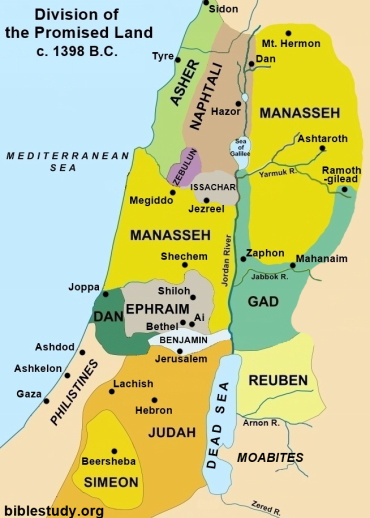
Did Not Drive Out
Nevertheless the children of Israel did not drive out the Geshurites or the Maachathites, but the Geshurites and the Maachathites dwell among the Israelites until this day. (Joshua 13:13)
And they did not drive out the Canaanites who dwelt in Gezer; but the Canaanites dwell among the Ephraimites to this day and have become forced laborers. (Joshua 16:10)
But the children of Benjamin did not drive out the Jebusites who inhabited Jerusalem; so the Jebusites dwell with the children of Benjamin in Jerusalem to this day. (Judges 1:21)
However, Manasseh did not drive out the inhabitants of Beth Shean and its villages, or Taanach and its villages, or the inhabitants of Dor and its villages, or the inhabitants of Ibleam and its villages, or the inhabitants of Megiddo and its villages; for the Canaanites were determined to dwell in that land. (Joshua 1:21)
And it happened, when the children of Israel grew strong, that they put the Canaanites to forced labor, but did no utterly drive them out. (Judges 17:13)
And it came to pass, when Israel was strong, that they put the Canaanites under tribute, but did not completely drive them out. (Judges 1:32)
So the Asherites dwelt among the Canaanites, the inhabitants of the land; for they did not drive them out. (Judges 1:32)
Joshua's Last Message
24:1 Then Joshua assembled all the tribes of Israel at Shechem. He summoned the elders, leaders, judges and officials of Israel, and they presented themselves before God.
2 Joshua said to all the people, “This is what the Lord, the God of Israel, says: ‘Long ago your ancestors, including Terah the father of Abraham and Nahor,lived beyond the Euphrates River and worshiped other gods. 3 But I took your father Abraham from the land beyond the Euphrates and led him throughout Canaan and gave him many descendants. I gave him Isaac, 4 and to Isaac I gave Jacob and Esau. I assigned the hill country of Seir to Esau, but Jacob and his family went down to Egypt.
5 “‘Then I sent Moses and Aaron, and I afflicted the Egyptians by what I did there, and I brought you out. 6 When I brought your people out of Egypt, you came to the sea, and the Egyptians pursued them with chariots and horsemen[a]as far as the Red Sea. 7 But they cried to the Lord for help, and he put darkness between you and the Egyptians; he brought the sea over them and covered them. You saw with your own eyes what I did to the Egyptians. Then you lived in the wilderness for a long time.
8 “‘I brought you to the land of the Amorites who lived east of the Jordan. They fought against you, but I gave them into your hands. I destroyed them from before you, and you took possession of their land. 9 When Balak son of Zippor,the king of Moab, prepared to fight against Israel, he sent for Balaam son of Beorto put a curse on you. 10 But I would not listen to Balaam, so he blessed you again and again, and I delivered you out of his hand.
11 “‘Then you crossed the Jordan and came to Jericho. The citizens of Jericho fought against you, as did also the Amorites, Perizzites, Canaanites, Hittites, Girgashites, Hivites and Jebusites, but I gave them into your hands. 12 I sent the hornet ahead of you, which drove them out before you—also the two Amorite kings. You did not do it with your own sword and bow. 13 So I gave you a land on which you did not toil and cities you did not build; and you live in them and eat from vineyards and olive groves that you did not plant.’
14 “Now fear the Lord and serve him with all faithfulness. Throw away the gods your ancestors worshiped beyond the Euphrates River and in Egypt, and serve the Lord. 15 But if serving the Lord seems undesirable to you, then choose for yourselves this day whom you will serve, whether the gods your ancestors served beyond the Euphrates, or the gods of the Amorites, in whose land you are living. But as for me and my household, we will serve the Lord.”
16 Then the people answered, “Far be it from us to forsake the Lord to serve other gods! 17 It was the Lord our God himself who brought us and our parents up out of Egypt, from that land of slavery, and performed those great signs before our eyes. He protected us on our entire journey and among all the nations through which we traveled. 18 And the Lord drove out before us all the nations,including the Amorites, who lived in the land. We too will serve the Lord, because he is our God.”
19 Joshua said to the people, “You are not able to serve the Lord. He is a holy God; he is a jealous God. He will not forgive your rebellion and your sins. 20 If you forsake the Lord and serve foreign gods, he will turn and bring disaster on you and make an end of you, after he has been good to you.”
21 But the people said to Joshua, “No! We will serve the Lord.”
22 Then Joshua said, “You are witnesses against yourselves that you have chosen to serve the Lord.”
“Yes, we are witnesses,” they replied.
23 “Now then,” said Joshua, “throw away the foreign gods that are among you and yield your hearts to the Lord, the God of Israel.”
24 And the people said to Joshua, “We will serve the Lord our God and obey him.”
25 On that day Joshua made a covenant for the people, and there at Shechem he reaffirmed for them decrees and laws. 26 And Joshua recorded these things in the Book of the Law of God. Then he took a large stone and set it up there under the oak near the holy place of the Lord.
27 “See!” he said to all the people. “This stone will be a witness against us. It has heard all the words the Lord has said to us. It will be a witness against you if you are untrue to your God.”
28 Then Joshua dismissed the people, each to their own inheritance.
The Covenant Renewed at Shechem
Joshua 28.1 Then Joshua assembled all the tribes of Israel at Shechem. He summoned the elders, leaders, judges and officials of Israel, and they presented themselves before God.
2 Joshua said to all the people, “This is what the Lord, the God of Israel, says: ‘Long ago your ancestors, including Terah the father of Abraham and Nahor,lived beyond the Euphrates River and worshiped other gods. 3 But I took your father Abraham from the land beyond the Euphrates and led him throughout Canaan and gave him many descendants. I gave him Isaac, 4 and to Isaac I gave Jacob and Esau. I assigned the hill country of Seir to Esau, but Jacob and his family went down to Egypt.
5 “‘Then I sent Moses and Aaron, and I afflicted the Egyptians by what I did there, and I brought you out. 6 When I brought your people out of Egypt, you came to the sea, and the Egyptians pursued them with chariots and horsemen as far as the Red Sea. 7 But they cried to the Lord for help, and he put darkness between you and the Egyptians; he brought the sea over them and covered them. You saw with your own eyes what I did to the Egyptians. Then you lived in the wilderness for a long time.
8 “‘I brought you to the land of the Amorites who lived east of the Jordan. They fought against you, but I gave them into your hands. I destroyed them from before you, and you took possession of their land. 9 When Balak son of Zippor,the king of Moab, prepared to fight against Israel, he sent for Balaam son of Beorto put a curse on you. 10 But I would not listen to Balaam, so he blessed you again and again, and I delivered you out of his hand.
11 “‘Then you crossed the Jordan and came to Jericho. The citizens of Jericho fought against you, as did also the Amorites, Perizzites, Canaanites, Hittites, Girgashites, Hivites and Jebusites, but I gave them into your hands. 12 I sent the hornet ahead of you, which drove them out before you—also the two Amorite kings. You did not do it with your own sword and bow. 13 So I gave you a land on which you did not toil and cities you did not build; and you live in them and eat from vineyards and olive groves that you did not plant.’
14 “Now fear the Lord and serve him with all faithfulness. Throw away the gods your ancestors worshiped beyond the Euphrates River and in Egypt, and serve the Lord. 15 But if serving the Lord seems undesirable to you, then choose for yourselves this day whom you will serve, whether the gods your ancestors served beyond the Euphrates, or the gods of the Amorites, in whose land you are living. But as for me and my household, we will serve the Lord.”
16 Then the people answered, “Far be it from us to forsake the Lord to serve other gods! 17 It was the Lord our God himself who brought us and our parents up out of Egypt, from that land of slavery, and performed those great signs before our eyes. He protected us on our entire journey and among all the nations through which we traveled. 18 And the Lord drove out before us all the nations,including the Amorites, who lived in the land. We too will serve the Lord, because he is our God.”
19 Joshua said to the people, “You are not able to serve the Lord. He is a holy God; he is a jealous God. He will not forgive your rebellion and your sins. 20 If you forsake the Lord and serve foreign gods, he will turn and bring disaster on you and make an end of you, after he has been good to you.”
21 But the people said to Joshua, “No! We will serve the Lord.”
22 Then Joshua said, “You are witnesses against yourselves that you have chosen to serve the Lord.”
“Yes, we are witnesses,” they replied.
23 “Now then,” said Joshua, “throw away the foreign gods that are among you and yield your hearts to the Lord, the God of Israel.”
24 And the people said to Joshua, “We will serve the Lord our God and obey him.”
25 On that day Joshua made a covenant for the people, and there at Shechem he reaffirmed for them decrees and laws. 26 And Joshua recorded these things in the Book of the Law of God. Then he took a large stone and set it up there under the oak near the holy place of the Lord.
27 “See!” he said to all the people. “This stone will be a witness against us. It has heard all the words the Lord has said to us. It will be a witness against you if you are untrue to your God.”
28 Then Joshua dismissed the people, each to their own inheritance.
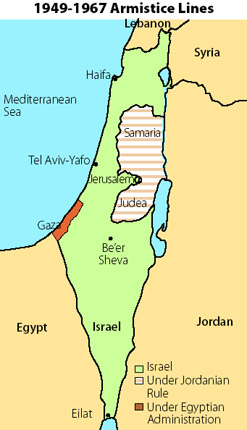
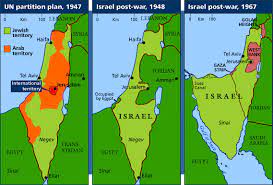
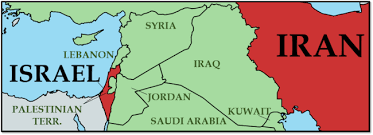
Hamas
Director of National Intelligence (.gov)
Hamas. Its roots are in the Palestinian branch of the Muslim Brotherhood,
and it is supported by a robust socio-political structure inside the Palestinian territories.
Muslim Brotherhood --Wikipedia


Notes by Lambert Dolphin
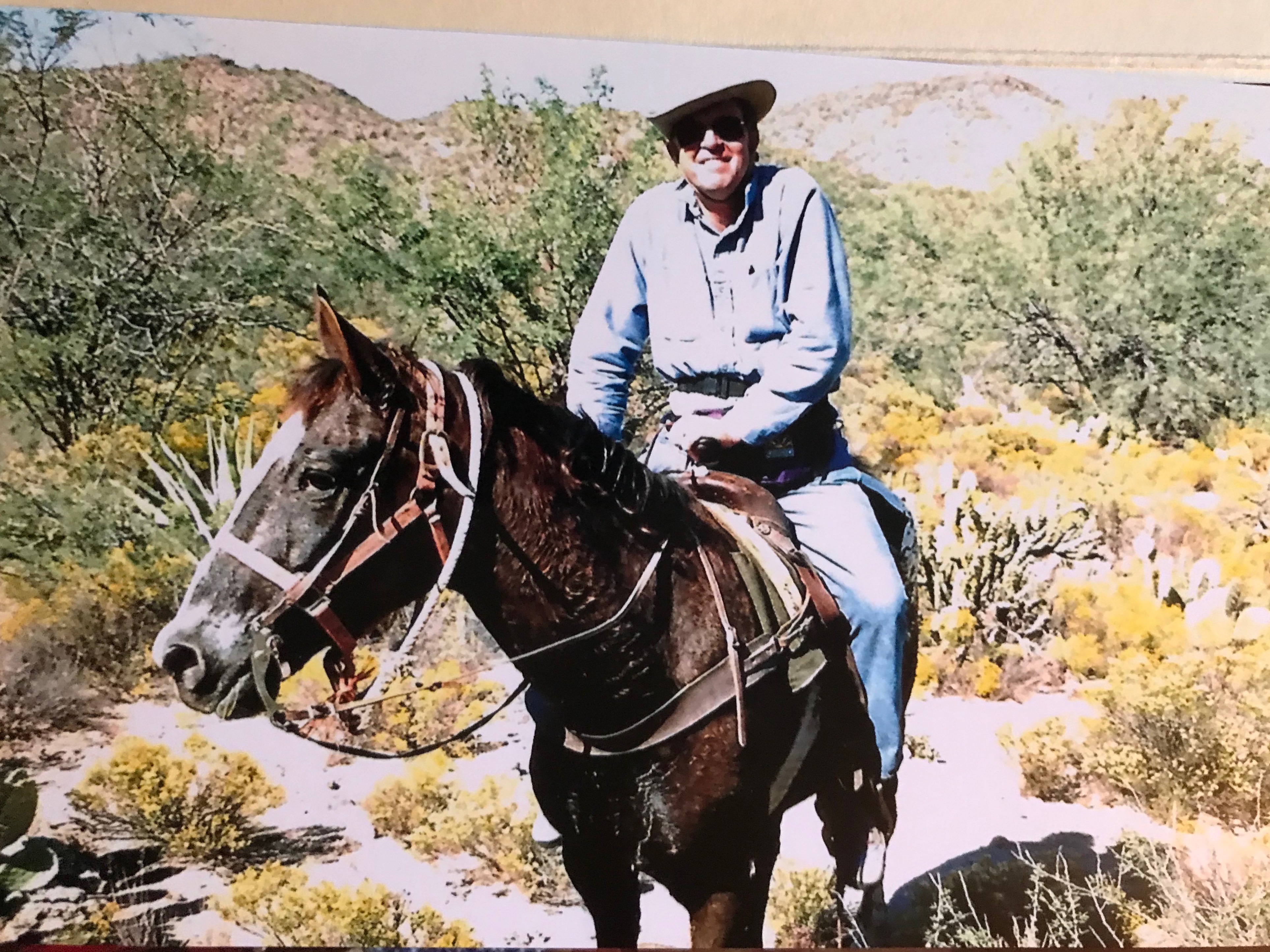
Lambert's Place
Email Lambert Dolphin
Archive for Newsletters
"Live Heresy is Better than Dead Orthodoxy Any Day"
--Horace Bissell
Library Annex
(900+ new articles since 2018)
Help Thyself. No Charge.
Recent articles are at the bottom

Interviews
Contributions
Lambert's Audio Library
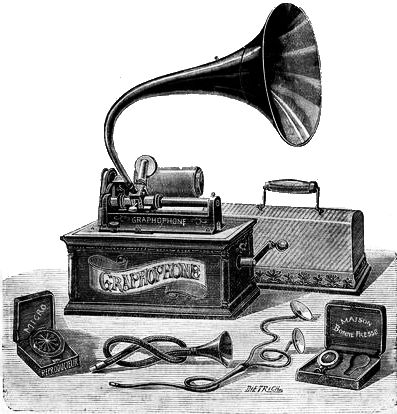
Keyword Search of Lambert's Web Site

October 10, 2023.



![]()



.jpg)








